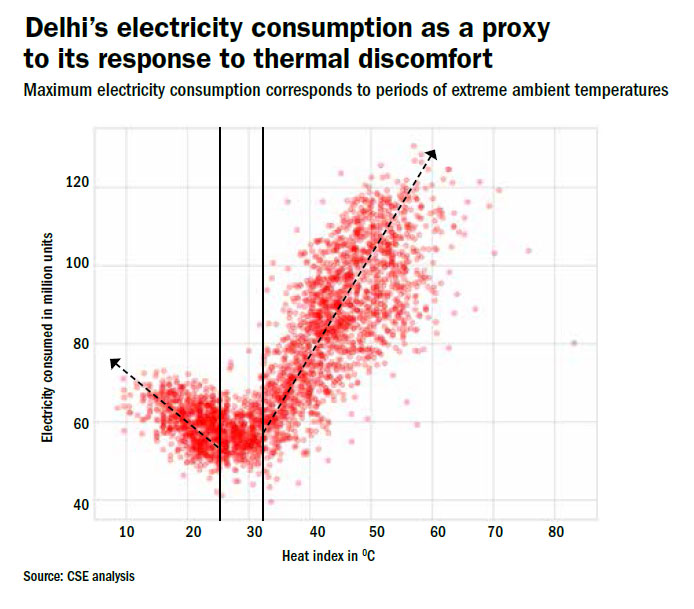A midsummer nightmare
How do we stay ‘thermally comfortable’ in peak summers, and do it sustainably? CSE e-released its new report.
As the country reels under a searing heat wave which even the onset of monsoons does not seem to alleviate, what many of us are preoccupied with is how to keep the scorching temperatures away. But do we realize that while our ACs help us, their reject heat increases street temperatures, worsening the heat stress on other people working outdoors? Do we know that to provide cooling for all its citizens, India would need 1.2 times more electricity than what it generates? Do we understand ‘perfect’ weather conditions, or know what the optimum temperature is for human comfort?
Centre for Science and Environment (CSE) released a first-of-its-kind study which attempts to answer these and other questions by linking our comfort to space cooling and energy guzzling. Says CSE executive director (research and advocacy) Anumita Roychowdhury: “Policies for the building sector focus largely on making cooling and heating technologies more energy-efficient, but an adaptive thermal comfort standard can go much beyond this, opening up new opportunities that, while improving energy efficiency, improve thermal comfort as well.”
For assistance or queries, please contact Sukanya Nair of The CSE Media Resource Centre, sukanya.nair@cseindia.org / 8816818864.
Press Releases
Presentations
 |
 |
| Downoad Report |
| Feedback |
|
A very lively and comprehensive acount on the flaming issue of the feedback loop existing between energy use to counter weather and climate related stress on humans and the alterations caused to weather and climate due to that energy use. Read more Also very interesting the linking between outdoor and indoor thermal comfort with a very perceptive description of what is actual meaning of the concept 'thermal comfort". |


Share this article